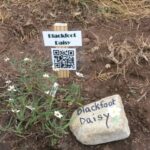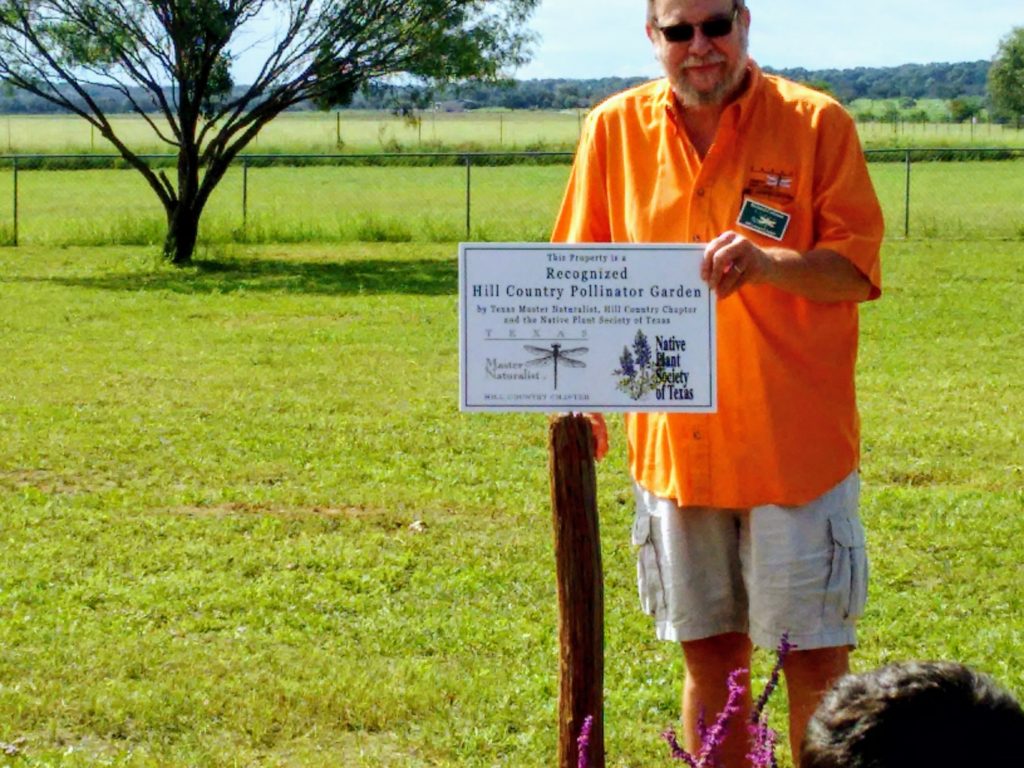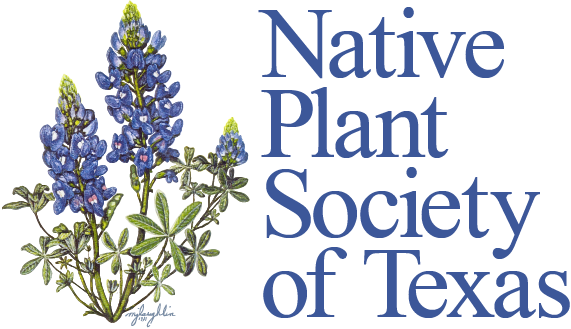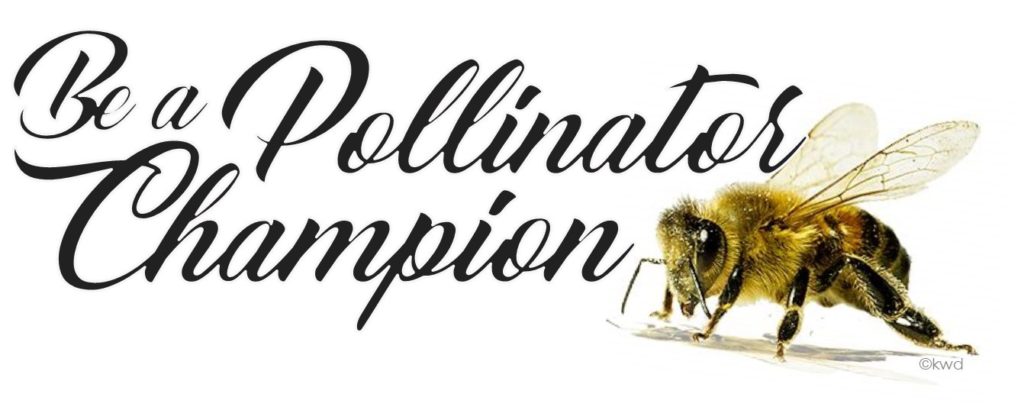 Hands reaching together to an important future. The Kerrville, Fredericksburg and Boerne Chapters of the Native Plant Society of Texas in close partnership with the Texas Master Naturalists, Hill Country Chapter are promoting small plot gardens to protect the life-giving foundation for pollinators.
Hands reaching together to an important future. The Kerrville, Fredericksburg and Boerne Chapters of the Native Plant Society of Texas in close partnership with the Texas Master Naturalists, Hill Country Chapter are promoting small plot gardens to protect the life-giving foundation for pollinators.
Think cottage size gardens.
Pollinator gardens provide nectar and habitat for native pollinators. Your small garden will be alive with bees, butterflies, and hummingbirds. Native Plant Society volunteers are available to partner with you to:
-
-
- discuss garden plan
- recommend plants that will grow best on your site
- provide advice and encouragement recognize and
- reward your important contributions to pollinator conservation.
-
With this free community service to assist, you can develop a beautiful garden that helps protect pollinators and our native plants – the foundation of life in this ecosystem.
From the Pollinator Garden page of the Hill Country Chapter, Texas Master Naturalist:
Pollinator Champion garden requirements:
Minimum Requirements for new gardens (must meet all):
- Minimum of approximately 100 square feet total planting area, no larger than 5500 square feet (1/8 acre).
- Minimum of approximately 100 square feet total planting area or larger for existing gardens.
- Flowering plants available to pollinators at least nine months of the year.
- Selective use of pesticides, herbicides, or insecticides in or around the pollinator garden to minimize environmental impact.
- Plant mix of no less than 75% native and no more than 25% non-native plants.
Additional Requirements (meet at least five):
Suitable Pollinator Habitat
- Bare ground area with no mulch or stone for native bees
- Crevices in walls
- Dry plant stems
- Low hanging limbs for resting spot
- Native bee houses
- Rock piles
- Snags
- Stacked logs
- Un-mown area for overwintering pollinators
Supplemental Food and Water
- Birdbath
- Fountain
- Hummingbird feeders
- Pollinator puddles
- Small stream
Other considerations and recommendations:
- Contact 811 before digging to verify location of underground utilities.
- Deer proofing measures
- Wire fencing to exclude small animals.
- Verify planting plans with Home Owners Association if necessary.
- Talk to your friends and neighbors about your pollinator gardens.
For more information and to request a volunteer consultation.
Pollinator Gardens support Education in Action
The Doss School, a pre-K through 8th grade school in northern Gillespie County between Fredericksburg and Mason, is one of the first gardens recognized for being a pollinator champion. It is not a traditional small yard garden, but it is within the ability of young children to create and plant . . . with encouragement from friends.
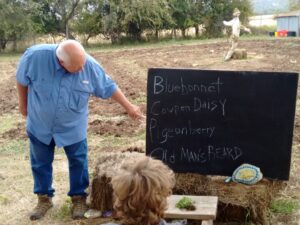 The garden began as a science project led by Master Naturalists “Farmer Don” and “Farmer Sean”. Each student researched the plants that would bring in hummingbirds, butterflies and other pollinators for their school gardens.
The garden began as a science project led by Master Naturalists “Farmer Don” and “Farmer Sean”. Each student researched the plants that would bring in hummingbirds, butterflies and other pollinators for their school gardens.
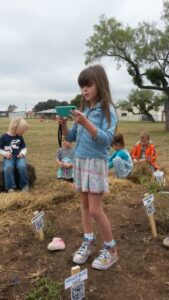 Younger students drew pictures; older ones gave reports and created QR codes for visitors to learn about their plants.
Younger students drew pictures; older ones gave reports and created QR codes for visitors to learn about their plants.
Through the spring, they dug their small plot, created marker stones, and determined where each plant would go. Everyone kept a journal of what they did and learned.
Richard Coleman from the Pollinator Garden and Assistance Program presented Doss School with their pollinator plaque September, 2018.